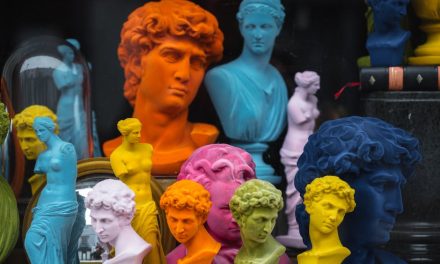Table of Contents
“The Role of Arab Diplomats: Shaping International Relations through Leadership”
Introduction
“The Role of Arab Diplomats in Shaping International Relations: A Lesson in Leadership” explores the significant impact and influence of Arab diplomats in shaping global affairs. This article delves into the crucial role played by Arab diplomats in fostering diplomatic relations, promoting peace, and advancing the interests of their respective countries on the international stage. By examining their diplomatic strategies, negotiation skills, and cultural diplomacy, this article highlights the invaluable lessons in leadership that can be learned from Arab diplomats and their contributions to shaping international relations.
The Historical Significance of Arab Diplomats in International Relations

The historical significance of Arab diplomats in international relations cannot be overstated. Throughout history, Arab diplomats have played a crucial role in shaping the course of global politics and fostering diplomatic relations between nations. Their leadership and diplomatic skills have been instrumental in resolving conflicts, promoting peace, and advancing the interests of the Arab world on the international stage.
Arab diplomats have a long and rich history that dates back centuries. From the early Islamic empires to the modern Arab states, Arab diplomats have been at the forefront of diplomacy and international relations. They have served as ambassadors, negotiators, and mediators, representing their countries and advocating for their interests.
One of the most notable examples of Arab diplomats’ historical significance is the role they played during the Arab-Israeli conflict. Arab diplomats were instrumental in negotiating peace treaties, such as the Camp David Accords and the Oslo Accords, which aimed to resolve the long-standing conflict between Israel and its Arab neighbors. These diplomatic efforts required immense skill, patience, and perseverance, as they involved navigating complex political dynamics and overcoming deep-rooted animosities.
Arab diplomats have also played a crucial role in promoting Arab unity and solidarity. They have worked tirelessly to foster cooperation and collaboration among Arab nations, particularly in times of crisis. For example, during the Gulf War in 1990, Arab diplomats played a pivotal role in building a coalition of Arab states to confront the Iraqi invasion of Kuwait. Their diplomatic efforts helped mobilize international support and ensure a unified Arab response to the crisis.
Furthermore, Arab diplomats have been instrumental in advancing the interests of the Arab world on the global stage. They have worked diligently to promote Arab culture, language, and values, while also advocating for Arab causes and issues. Arab diplomats have been vocal proponents of Palestinian rights, calling for an end to the Israeli occupation and the establishment of an independent Palestinian state. They have also been active in addressing other regional challenges, such as the Syrian civil war and the Yemeni conflict, through diplomatic channels.
The leadership qualities exhibited by Arab diplomats have been crucial in their success. They possess a deep understanding of cultural nuances, which allows them to navigate complex diplomatic landscapes effectively. Arab diplomats are skilled negotiators, adept at finding common ground and building consensus among diverse stakeholders. They are also known for their ability to maintain composure and professionalism, even in the face of adversity.
In conclusion, the historical significance of Arab diplomats in international relations cannot be underestimated. Their leadership and diplomatic skills have played a pivotal role in shaping global politics, resolving conflicts, and advancing the interests of the Arab world. Arab diplomats have demonstrated their ability to navigate complex diplomatic landscapes, promote Arab unity, and advocate for Arab causes. Their contributions serve as a valuable lesson in leadership, highlighting the importance of cultural understanding, negotiation skills, and perseverance in the field of diplomacy. As the world continues to face numerous challenges, the role of Arab diplomats in shaping international relations remains as crucial as ever.
The Influence of Arab Diplomats on Global Peace and Security
The Role of Arab Diplomats in Shaping International Relations: A Lesson in Leadership
The Influence of Arab Diplomats on Global Peace and Security
In today’s interconnected world, the role of diplomats in shaping international relations cannot be overstated. Arab diplomats, in particular, have played a significant role in promoting global peace and security. Their unique perspective, cultural understanding, and diplomatic skills have allowed them to navigate complex geopolitical landscapes and foster dialogue among nations. This article explores the influence of Arab diplomats on global peace and security, highlighting their contributions and the lessons in leadership that can be learned from their approach.
Arab diplomats have been instrumental in mediating conflicts and promoting peace in various regions. Their deep understanding of the Middle East’s complex dynamics has allowed them to effectively engage with conflicting parties and facilitate dialogue. For instance, Arab diplomats played a crucial role in brokering the historic Camp David Accords between Egypt and Israel in 1978. Their diplomatic efforts helped establish a framework for peace in the region and set a precedent for future negotiations.
Furthermore, Arab diplomats have been actively involved in multilateral organizations, such as the United Nations, where they advocate for peace and security on a global scale. Their participation in international forums allows them to voice the concerns and aspirations of Arab nations, contributing to a more inclusive and balanced approach to global decision-making. Arab diplomats have consistently emphasized the importance of dialogue, mutual respect, and understanding as key pillars for achieving lasting peace.
The influence of Arab diplomats extends beyond conflict resolution. They have also played a crucial role in promoting security and stability in the face of emerging threats. Arab nations, particularly those in the Gulf region, have been at the forefront of counterterrorism efforts. Arab diplomats have actively engaged with international partners to develop strategies and initiatives aimed at combating terrorism and extremism. Their collaboration with other nations has resulted in enhanced intelligence sharing, coordinated military operations, and the implementation of effective counterterrorism measures.
Moreover, Arab diplomats have been instrumental in addressing global challenges, such as climate change and sustainable development. Arab nations, endowed with vast natural resources, have recognized the importance of environmental stewardship and have taken proactive steps to mitigate the impact of climate change. Arab diplomats have actively participated in international climate negotiations, advocating for sustainable development practices and promoting renewable energy initiatives. Their leadership in this area serves as a valuable lesson for the international community, highlighting the importance of collective action and long-term thinking in addressing global challenges.
The influence of Arab diplomats on global peace and security can be attributed to their unique approach to diplomacy. Arab diplomats prioritize dialogue, respect, and cultural understanding, recognizing that sustainable solutions can only be achieved through mutual cooperation. They have demonstrated the ability to bridge divides, build trust, and foster meaningful relationships with nations across the globe. Their leadership style is characterized by patience, perseverance, and a commitment to finding common ground.
In conclusion, Arab diplomats have played a significant role in shaping international relations and promoting global peace and security. Their contributions in conflict resolution, counterterrorism efforts, and addressing global challenges have been invaluable. The lessons in leadership that can be learned from their approach include the importance of dialogue, cultural understanding, and a commitment to long-term solutions. As the world continues to face complex challenges, the role of Arab diplomats in shaping international relations serves as a testament to the power of diplomacy and the potential for positive change.
Arab Diplomats as Mediators in Conflict Resolution
Arab diplomats have long played a crucial role in shaping international relations, particularly in the realm of conflict resolution. Their unique position as mediators has allowed them to bridge gaps and foster dialogue between conflicting parties. This article will explore the significant contributions of Arab diplomats in conflict resolution and highlight the lessons in leadership that can be learned from their approach.
One of the key reasons why Arab diplomats have been successful in mediating conflicts is their deep understanding of the cultural and historical context of the region. This knowledge enables them to navigate complex dynamics and build trust with all parties involved. By acknowledging the grievances and aspirations of each side, Arab diplomats can effectively facilitate negotiations and find common ground.
Moreover, Arab diplomats often possess strong interpersonal skills, which are essential in conflict resolution. They are adept at active listening, empathy, and effective communication. These skills allow them to create an atmosphere of trust and openness, where all parties feel heard and understood. By fostering a sense of mutual respect, Arab diplomats can encourage dialogue and compromise, leading to sustainable solutions.
Another crucial aspect of Arab diplomats’ role in conflict resolution is their ability to leverage their networks and connections. Arab countries have historically maintained close ties with various regional and international actors, giving their diplomats access to influential individuals and organizations. This network allows them to garner support for their mediation efforts and exert pressure on conflicting parties to come to the negotiating table. By utilizing their connections strategically, Arab diplomats can increase the chances of successful conflict resolution.
Furthermore, Arab diplomats often adopt a principled and impartial approach to mediation. They prioritize the interests of peace and stability over any particular agenda or ideology. This impartiality allows them to gain the trust of conflicting parties and positions them as honest brokers. By remaining neutral, Arab diplomats can effectively facilitate negotiations and help parties find common ground. This commitment to principled mediation sets a powerful example for leaders worldwide, emphasizing the importance of putting the greater good above personal or political interests.
Arab diplomats also understand the significance of inclusivity in conflict resolution. They recognize that sustainable peace can only be achieved when all stakeholders are involved in the decision-making process. Arab diplomats actively engage with civil society organizations, women’s groups, and marginalized communities to ensure their voices are heard. By promoting inclusivity, Arab diplomats create a sense of ownership and legitimacy among all parties, increasing the likelihood of successful conflict resolution.
In conclusion, Arab diplomats have played a vital role in shaping international relations through their mediation efforts. Their deep understanding of the region’s cultural and historical context, strong interpersonal skills, extensive networks, impartiality, and commitment to inclusivity have made them effective mediators in resolving conflicts. Leaders worldwide can learn valuable lessons from Arab diplomats’ approach, emphasizing the importance of cultural understanding, empathy, and principled leadership in conflict resolution. As conflicts continue to arise, the role of Arab diplomats in shaping international relations will remain crucial, serving as a beacon of hope for peaceful resolutions.
The Role of Arab Diplomats in Promoting Cultural Exchange and Understanding
The Role of Arab Diplomats in Promoting Cultural Exchange and Understanding
Arab diplomats play a crucial role in shaping international relations, not only in terms of political and economic cooperation but also in promoting cultural exchange and understanding. In an increasingly interconnected world, where cultural diversity is both celebrated and challenged, the role of diplomats in fostering mutual respect and appreciation for different cultures cannot be overstated.
One of the primary ways in which Arab diplomats promote cultural exchange is through cultural diplomacy. Cultural diplomacy refers to the use of cultural assets, such as art, music, literature, and cuisine, to build bridges between nations and foster understanding. Arab diplomats often organize cultural events, such as art exhibitions, film festivals, and music concerts, to showcase the rich cultural heritage of their countries. These events provide a platform for people from different backgrounds to come together, appreciate each other’s cultures, and engage in meaningful dialogue.
Moreover, Arab diplomats actively engage in cultural exchange programs, facilitating the exchange of artists, scholars, and students between Arab countries and the rest of the world. These programs allow individuals to immerse themselves in different cultures, learn from one another, and develop a deeper understanding of the values and traditions that shape societies. By facilitating such exchanges, Arab diplomats contribute to the creation of a global community that values diversity and promotes intercultural dialogue.
In addition to cultural diplomacy, Arab diplomats also play a crucial role in promoting understanding through educational initiatives. Many Arab countries offer scholarships to international students, enabling them to pursue higher education in Arab universities. By providing these opportunities, Arab diplomats not only contribute to the development of human capital but also foster cross-cultural understanding and cooperation. Students who study in Arab countries gain firsthand experience of the local culture, language, and traditions, which helps break down stereotypes and build lasting connections.
Furthermore, Arab diplomats actively engage in public diplomacy, using various media platforms to promote their culture and counter negative stereotypes. They work closely with media outlets to ensure accurate and balanced portrayals of their countries, challenging misconceptions and promoting a more nuanced understanding of Arab societies. Through interviews, articles, and social media campaigns, Arab diplomats strive to present a multifaceted image of their countries, highlighting their contributions to art, science, and literature, and emphasizing their commitment to peace and stability.
Arab diplomats also play a crucial role in facilitating interfaith dialogue and promoting religious tolerance. In a world where religious differences often lead to conflict and misunderstanding, Arab diplomats work tirelessly to foster dialogue and build bridges between different religious communities. They organize conferences, seminars, and workshops that bring together religious leaders from different faiths to discuss common challenges and explore avenues for cooperation. By promoting interfaith dialogue, Arab diplomats contribute to the creation of a more inclusive and harmonious global society.
In conclusion, Arab diplomats play a vital role in promoting cultural exchange and understanding in the international arena. Through cultural diplomacy, educational initiatives, public diplomacy, and interfaith dialogue, they foster mutual respect, appreciation, and cooperation among nations. In an increasingly interconnected world, where cultural diversity is both a source of strength and a potential source of conflict, the role of Arab diplomats in shaping international relations serves as a lesson in leadership. Their efforts to bridge cultural divides and promote understanding are essential for building a more peaceful and prosperous world.
Q&A
1. What is the role of Arab diplomats in shaping international relations?
Arab diplomats play a crucial role in shaping international relations by representing their countries’ interests, promoting dialogue, and negotiating agreements with other nations.
2. How do Arab diplomats contribute to leadership in international relations?
Arab diplomats contribute to leadership in international relations by demonstrating effective communication skills, fostering cooperation, and advocating for their countries’ positions on global issues.
3. What lessons can be learned from the role of Arab diplomats in shaping international relations?
Lessons that can be learned from the role of Arab diplomats include the importance of diplomacy, negotiation, and cultural understanding in building strong international relationships.
4. What impact do Arab diplomats have on global politics?
Arab diplomats have a significant impact on global politics by influencing decision-making processes, mediating conflicts, and promoting regional stability through diplomatic initiatives.
Conclusion
In conclusion, Arab diplomats play a crucial role in shaping international relations through their leadership skills. They navigate complex political landscapes, build alliances, and promote dialogue to address regional and global challenges. Their diplomatic efforts contribute to fostering peace, stability, and cooperation among nations, ultimately shaping the course of international relations.






Recent Comments